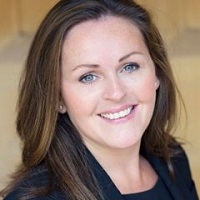
Eilish Jamieson
Portfolio NED
Eilish’s Biography
Eilish is a governance, risk management and assurance professional with over 20 years international experience of working at board level in large, regulated, and complex financial services organisations in executive and non executive roles. As a non executive director, Eilish works with the Financial Reporting Council, the regulator for the UK accounting profession and corporate governance standards and Sport England, the principal investor of public funds in grassroots sports in England. Eilish manages her NED portfolio whilst running a specialist consultancy which provides bespoke solution services in audit, risk and governance. Prior to this, Eilish spent 12 years at Goldman Sachs as a Head of Audit and trained as a Chartered Accountant with KPMG.
FIVE TOP TIPS FROM EILISH
Below are just a few tips for anyone aspiring to take up a NED role. This is by no means an exhaustive list, and I would recommend talking to other NEDs since every experience is different. As you read through these you will probably be thinking that much of this applies equally to executive roles – and you would be right. In fact, there is no legal distinction between an executive and non-executive director. The role of NED and executive director both carry risk and accountability to the stakeholders of the organisation and although you do not have day-to-day management responsibilities, your performance and contribution on the board are equally important.
Choose your organisation wisely
We frequently hear that your first NED role is the hardest one to get, so you could be tempted to go with one of the first opportunities that comes along to get that crucial NED title. That could be a big mistake. It is important to decide if you want to be involved with an organisation in the same way as you would if you were taking up an executive role there. Look beyond the service or product offering and considering the organisation’s mission, values and culture. I didn’t set out to take up a NED role in the sports sector, but so much of what the sector aims to achieve in terms of physical, mental and social wellbeing really got me. It goes without saying, that it is significantly easier to stay engaged as a NED if you are interested and inspired by what your organisation does.
Remember your value is so much more than your CV
Despite all the excellent resources we have available to us (not least with Women on Boards!) there is still an air of uncertainty around the specific values a NED should bring to the board or committee. The dynamics of each individual board and committee varies enormously, and for that reason you will be hard pressed to find a description of the perfect NED. The journey for both sides is in finding the best match for the organisation at that time. Your part is to identify which of your skills and experiences would benefit the organisation and then be able to articulate that in the interviewing process. Speaking to current or former NEDs in the same sector in preparation for an interview will be incredibly valuable since it will enable you to validate your thoughts.
When you get your seat at the table – be yourself
In our corporate career we are frequently reminded of the virtues of working and thinking as a team, so it can require a shift in mind-set to remember that a NED role is about you challenging the executive management as much as you are supporting them. A ‘critical friend’ as it is often called. You will have been chosen from many candidates because of your unique combination of experience and characteristics that make you the right NED for that board. You are not there as a representative of your current or past company, so be confident in being just you. Authenticity is one of the strongest and most impactful attributes you can bring with you to the boardroom table.
Stay connected
New and aspiring NEDs need to structure their own network and communication channels to keep connected and informed. This may be in the form of key individuals, news feeds, regular events or periodicals – whatever form it takes, you need to make it work for you and factor this into your schedule as you would any other job responsibility. You have a duty to the organisation and its stakeholders to look beyond the boardroom to what might be coming around the corner, and you will need much more than the board papers to do that well. And whilst you are at it, don’t forget to take a pulse check when you are visiting the organisation – there is a lot to be said from what you see and hear whilst walking around the offices – possibly one of the easiest, and most valuable ways to stay connected.
Why wait?
I am what is known as a ‘mid-career NED’, since I started my NED work during my corporate career. There are so many compelling arguments today for why diversity of age and experience on the board is important that the need for more mid-career NEDs and NEDs from other backgrounds is increasing; not least so in the technology and education sectors. Companies are starting to wake up to the valuable growth opportunity this can offer their senior management to gain board level experience and refresh their thinking in sectors outside of their own. If you are in a corporate role and haven’t spoken to them about external NED opportunities then think about doing it now. Why wait?
